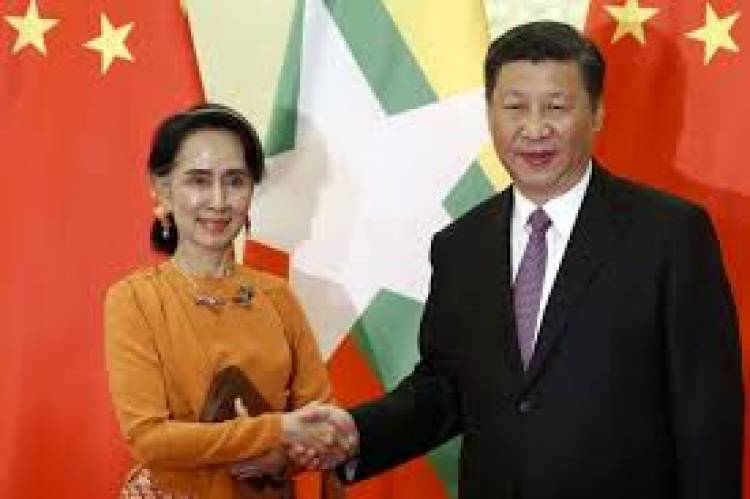China and Myanmar 'stand together' despite Rohingya backlash

China and Myanmar are set to ink mammoth infrastructure deals following a meeting on Saturday between President Xi Jinping and fallen rights icon Aung San Suu Kyi, who pledged to stand with Beijing "till the end of the world".
The Chinese leader's two-day state visit to Myanmar's purpose-built capital comes as Western investors cast a wide berth around the country due to the Rohingya crisis.
A 2017 military crackdown on the mainly Muslim minority, which UN investigators have called genocide, forced some 740,000 Rohingya over the border into Bangladesh.
Beijing has stood strong with Myanmar despite the condemnation.
After arriving Friday Xi called the visit a "historical moment" for relations between the two neighbours, according to state-run newspaper the Global New Light of Myanmar.
He also touched on the "unfairness and inequality in international relations" in what could be seen as a slight against the United States, which has sanctioned Myanmar army chief Min Aung Hlaing.
Myanmar leader Suu Kyi -- whose reputation lays in tatters in the West's eyes due to her defence of the army over the Rohingya crackdown -- said the country will always be at China's side.
"It goes without saying that a neighbouring country has no other choice, but to stand together till the end of the world," she said during a celebration late Friday.
The Asian giant is now Myanmar's largest investor, and the headline deals include a deep-sea port, several economic zones and a high-speed rail link criss-crossing the country.
The so-called "China-Myanmar Economic Corridor" will carve a path of infrastructure from China's landlocked south to Myanmar's western Rakhine state -- Beijing's long-awaited gateway to the Indian Ocean.
The multi-billion-dollar agreements will be on the table Saturday, in between sit-down meetings with Suu Kyi and the army chief, who stands accused of masterminding the Rohingya crackdown.
China remains an indispensable ally for its Southeast Asian neighbour, wielding a protective veto vote at the UN Security Council.
But widespread mistrust of Beijing's ambitions persists among those who are sceptical the economic benefits will trickle down to the masses.
In commercial capital Yangon, protesters are expected to rally against any reinstatement of a controversial Chinese-backed mega-dam.
The 3.6 billion 6,000 megawatt Myitsone project was suspended in 2011 in the face of vociferous criticism across the country.
This is believed to have been a personal affront to Xi, who signed the deal with Myanmar's then-military junta as vice president in 2009.




















